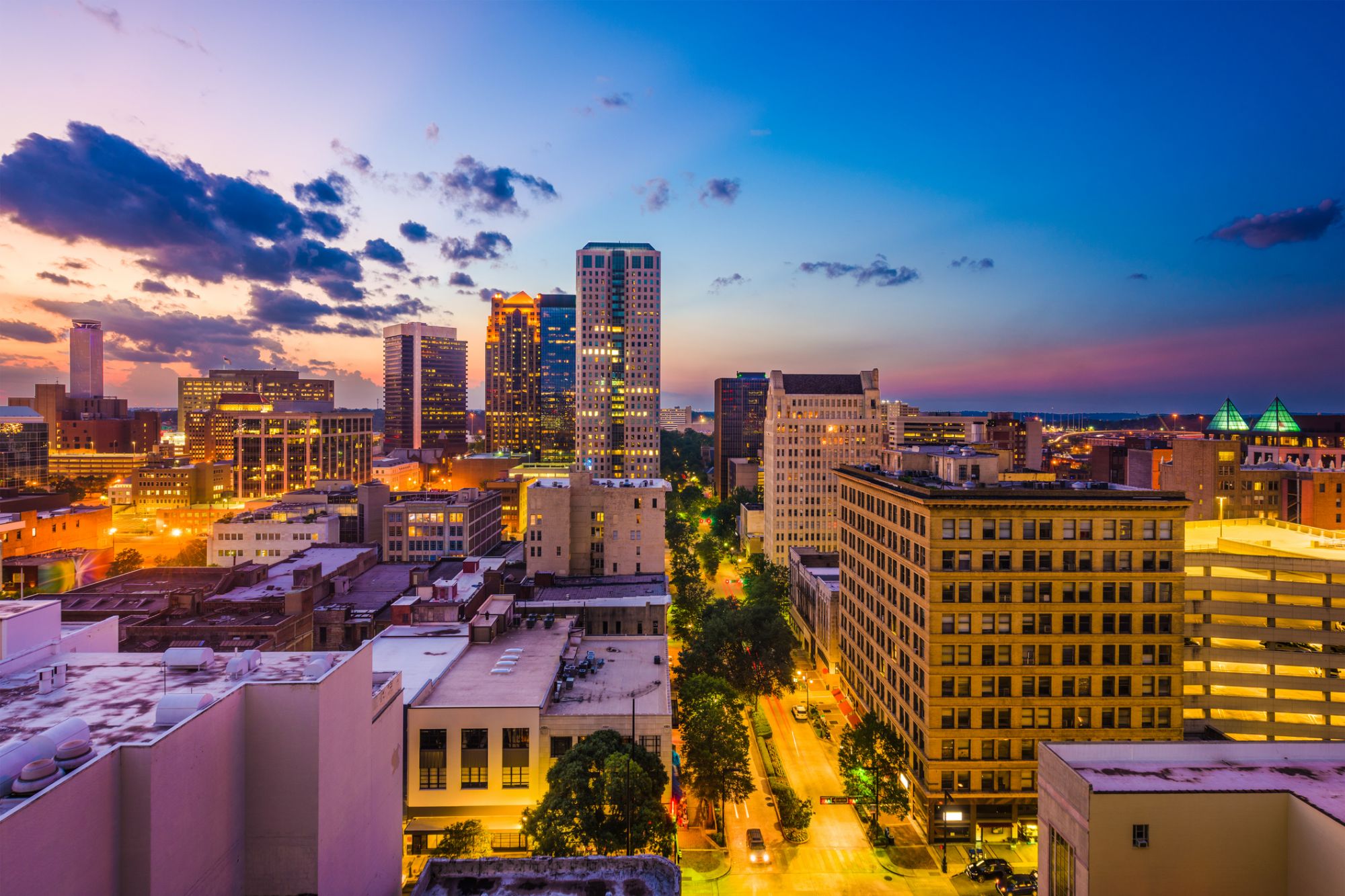
An abandoned Sears and a $550 million sale to Target are driving this Magic City.
4 min read
Opinions expressed by Entrepreneur contributors are their own.
The most interesting place I visited in 2019 was Birmingham, Alabama. It wasn’t my first time. I spoke at the University of Alabama at Birmingham (UAB) in 2015 and had a great experience, but what changed over the ensuing four years was an absolute shift in energy, an upward trajectory.
Chances are, you’re not in the market to move to Alabama, but plenty of startups have. And the most important takeaway from this mid-sized surge city’s story is how each city, your city, can support startup growth going forward.
Shipt is the most notable, homegrown addition to Birmingham and its skyline. Walk around downtown and you won’t miss its green spaceship logo. Selling to Target for $550 million in late 2017 was the kind of high-profile move that signaled you could build something big there.
Related: 7 Ways Entrepreneurs Drive Economic Development
Building an Ecosystem
The groundwork was really laid for Birmingham’s revival in 2007 at an abandoned Sears. The Innovation Depot raised $15 million from UAB, public companies and state and local government to transform the building into one of the strongest entrepreneurial centers in the country, a centralized support system for everything startups that has become the model for other centers nationwide
Making this investment before an economic downturn, before building startup ecosystems were en vogue, diversified Birmingham’s economy and helped it come out of the recession better than before it entered. Over the last five years, the Innovation Depot has created 1,000 new jobs and delivered an economic impact of $1.6 billion. Companies started there raise, on average, more than $50 million a year.
In Silicon Valley terms, that number may seem small, but you have to remember Birmingham and the state of Alabama’s starting point. U.S. News ranked Alabama 49th overall and 45th in both its economy and infrastructure in 2018. What its success proves is with the right support system, the right investments and the right partners, any city can build a thriving ecosystem. It just takes patience, ambition and a desire to push everyone forward.
Becoming a Startup Destination
It’s that energy that has ultimately attracted startups to relocate to Birmingham. The most interesting example I came upon was Mixtroz. On the surface, the event-management software company has a story like any other startup. They are growing, getting funding and helping people get more out of networking events. But mother-daughter founders Ashlee Ammons and Kerry Schrader are not from Birmingham and had no connection there. Three years ago, they were struggling to get off the ground in Nashville. That’s when Innovation Depot found them and invested in them. But the rest was all Mixtroz. They just needed the support system. Kerry and Ashlee became the 37th and 38th African-American females to raise more than $1 million for a startup, an impressive feat.
Related: Start Working Now to Make Your Small Business Recession-Proof
You may not have expected Alabama to be a hub of geographic diversity, but almost every founder I met there was a transplant, including Dr. Sanjay Singh and Dr. Mazi Rasulnia, who were launching Pack Health, a digital coaching program for chronic conditions. I also met Weida Tan, a former UAB student who started making homemade, more efficient storage adapters for Apple devices and sold them online. In a couple of years, he has turned that idea in to a full company, Fledging, and secured a $1.1 million investment.
Those are just a couple of the many stories in Birmingham. Their startup scene is both diverse in founders and type of company, built on driving tens, hopefully hundreds, of million-dollar startups that can grow and reinvest in the city. The 2020s won’t be built on chasing the exit. This is the long-term growth model that works.
What I’ve noticed most in all of my travels is that the cities with the most to prove band together the most. Birmingham is getting stronger because it doesn’t care who you are, where you are from, what school you went to or who your parents know. They only care if you can help Birmingham grow. And if you can, they will put all of their energy in to making it happen together with you.
That sounds simple but its surprisingly rare. There’s no ego in Birmingham to get in their way. Their path is clear.
https://www.entrepreneur.com/article/345070

